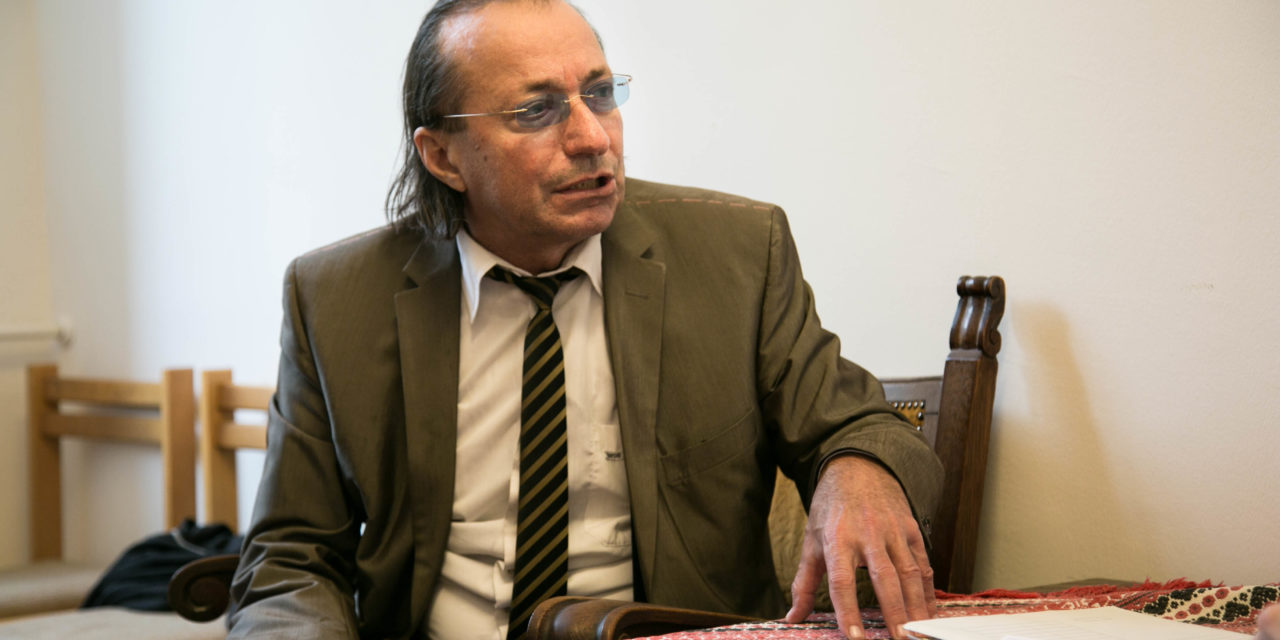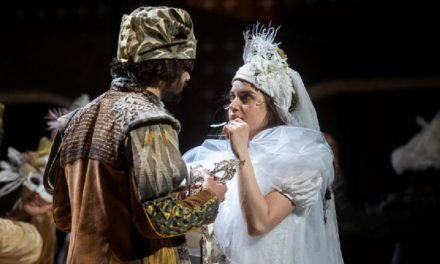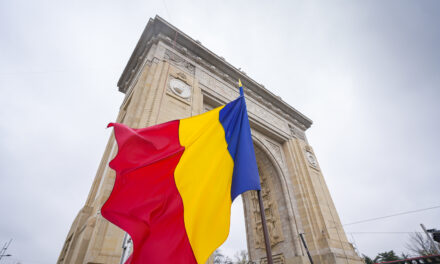Maybe apocalyptic times are coming, maybe we'll be hiding in reeds again. But maybe we'll stop the bigots from setting the Earth on fire again.
It is certain that on the first day of St. John's month, a large crowd will flood the streets of Budapest, and the most important message to the crowd when they go to Margitsziget will be peace, which is a prerequisite for experiencing freedom and national feeling even today. It is also a prerequisite for life. It is important that all of this is experienced and proclaimed by the masses, and with the same dignity as the nation did in our best eras, and if the nation as a whole did not succeed, at least the best of them did. We had an era, and perhaps there is one, when the words of those who stood for the most beautiful ideas characterized the will of the nation as a whole, and there was also a time when everything was confused, and even the best went astray.
To look at the whole, to represent the whole: this is the historical task. It seems almost impossible, because it really often seems that the detail is more important than the whole. The detail: interest. However, the totality of interests is far from the whole. It's all on a different level, in a different dimension. There is no time there, time is truly past, present and future at the same time. My four-month-old youngest grandson has a past through me, and I also have a future through him. This is how the nation lives in eternity.
Don't expect me to clarify this now. Many people have already tried to identify the time. From St. Augustine to Einstein. The former states:
“So what's the time? If no one asks me, I know. However, if I have to explain it to an interviewer, I don't know." For me, this is the correct position. Einstein's formulation is bombastic. "The difference between past, present and future is only an illusion, even if it is so stubborn."
I don't understand this, I can't grasp it. Maybe I can feel it. That still makes it true, although at this level of relativity reality is completely at the mercy of the "observer". And how easily the observer can say: "everything is relative". "Whether or not two events are simultaneous depends on the observer." The observer is then outside of time. Perhaps he is the creator that Einstein refers to so many times. Let's move on from here. Back to emotions.
Strange as it may seem, for the first time in our history, a spontaneously gathered mass of citizens exerted a significant influence on events on March 15, 1848. Before that, they gathered to go to war, for example, under the cross of György Dózsa and the flag of Rákóczi. Of course, it is possible to argue: how many Petőfiés there were; what kind of revolutionary crowd is it that goes home for lunch at noon; and when they gathered again after lunch, did not shed a single drop of blood? Even then, the "observers" were very angry, and Petőfi protected the revolution from them:
"Many people want to dispute this name from our movements, and why? Because there was no blood. It's just the glory of the thing, but it doesn't change the thing."
That's right. Just as it is also true that our poet would have set up a gallows not only for the kings, but also for Lajos Batthyány and eight of his ministers. Among them Kossuth, Széchenyi, Eötvös, Deák. What could have blinded Petőfi so much? Is it the interest? I do not think so. The poet was not without emotion and faith. So what was it that led him astray? He deceived her. Perhaps because he saw the details as more important than the whole to many, and his restless mind envisioned the redemption of all humanity. What a lesson! We hardly have a poet with a more beautiful voice than him, who sang of Hungarianness and the Hungarian nation, but he was blinded by the illusions of world redemption - in a nicer word: world freedom - in the details. And there was even a freelance affair with the election.
This is a great lesson on all levels. At the level of the stubborn illusion of the past, present and future, which is time, but also at the level of the historical past, which is not at all the same as a mere description of the events that happened. Need more. The connections, the emotions. The generation of the reform era was at home in this country, just as we are at home. Batthyány and Petőfi form an alloy. And not only because in 1849 they both gave their lives for freedom and the country. That's also because they and we also have a sentiment that goes beyond quite a few nations. We are the same as ourselves, Hungarians and Europeans. We are not putting Europe at risk, and the fact that they are putting it at risk hurts us the most. We have no other way, we cannot drift to the "Anglo-Saxon" world (like England's former colonies); we don't have a "Slavic way", nor a "Latin revival", a Germanic or just a Scandinavian region.
We cling mostly to the Europe that reached the highest level of human existence in the sixties and seventies of the twentieth century. Perhaps not only on a financial level - the United States was far ahead there - but in all other respects, yes. And then the Hungarians were not considered a small nation. For a small country at most. There are still a few of us - we'll see how many - who have not been driven into skepticism by the series of traumas that befell us in the twentieth century and are still affecting us today. To hell with the "dead-end development", the constant bad luck, the "we can't even succeed" mentality. Who cares: if there is peace, development cannot stop either! We cannot eliminate all addictions. Both economic and political. Not now.
That is why we are forced to constantly get going. I know it's tiring to always start over, to start over. In the twentieth century, it was necessary to start over nine times, starting from the generalities. Since the last shock, one person has been killed. We cleared ruins, progressed, rose, developed, but wasted a lot of energy and time. It was not given to our generation to build its own world from scratch, without history. We have left behind us the trauma of many hundreds of years, and above all the ruins of "socialism". Material, moral and spiritual ruins. And now the threat is here again. False alarm, virus, strangulation. And they would turn our bad mood into a myth again. By forcing the guilt of those who remain alone on us.
Peace, freedom, nation. There will be another word on the island: sovereignty. Contradiction? Mass and sovereignty. That's why I use the word multitude. The crowd swallows it up, washes it down, makes it featureless. But internal sovereignty can remain in the multitude. Which is sometimes good to show. That he doesn't hide. I know that the destruction of this is an eminent goal of those who do not sympathize with us. So you have to be very careful about it. This is not an emotional issue. Mistakes are not saved by the mission. Neither the past nor the future will save. In this sense, time is truly relative. At the same time, constant blaming takes away self-respect from an entire generation, even from the nation.
Faking reality backfires badly. Being alone in a community with our opinion is not a pleasant state. There is no other way but to draw strength from where you can: from a crowd of enthusiastic supporters; from the point of view representing the fullness of human self-consciousness, in which the struggle of the ancestors embraces the struggles of the present. In good cases, support comes from unexpected places. From higher than where the homeland is, even higher than where the Bishop of Rome is located. He says so too
"let's talk about peace for those who want war, forgiveness for those who seek revenge, acceptance and solidarity for those who barricade doors and erect obstacles, life for those who choose death, respect for those who like to humiliate (others), loyalty to one who rejects all ties, confusing freedom with superficial, vague and empty individualism.”
The latter remark was certainly aimed at those who rejected the nation, who, like HG Wells, saw the nation as a pitiful obstacle to progress. This much is certain: the world state is precisely incompatible with world freedom. And the European Empire with the European civilization, which is based on history, language, culture: i.e. nation.
The country and our nation are under tremendous pressure these days. It was like that many times. In a national sense, we really only bowed, but we did not break. We don't even want to bend now. We can't stand it. Precisely because there was already a lot of bowing and humiliation. This is what today's crowd expresses. Maybe apocalyptic times are coming, maybe we'll be hiding in reeds again. But maybe we'll stop the bigots from setting the Earth on fire again.
Featured image: Viktor Krĉ













